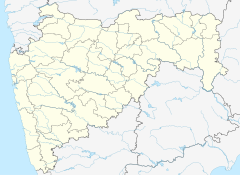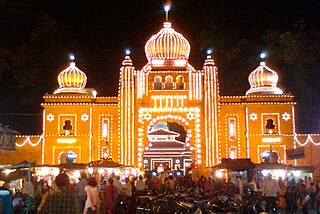
Sangli is a Metro city and the headquarters of Sangli District in Maharashtra, in western India. It is known as the Turmeric City of India due to its production and trade of spice. Sangli is situated on the banks of river Krishna and houses many sugar factories. A significant city in Western India, it lies 376 km from Mumbai, 230 km from Pune and 638 km from Bangalore. Sangli is known as Turmeric city for its global turmeric trade, grapes, raisins, jaggery and the most significant number of sugar factories in India. The only district has more than 30 sugar factories. Sangli Miraj Kupwad, along with its Urban Agglomeration, together known as Sangli Miraj Kupwad Metropolitan Region (SMKMR).
Kirloskarvadi is India's second oldest industrial township that developed around the Kirloskar Brothers Ltd factory in the Palus, Sangli district, in Maharashtra state, India. It is the second oldest industrial township in India. On 10 March 2010, Kirloskarvadi celebrated 100 years of its establishment. Kirloskarvadi is a rapidly growing satellite suburb of Palus city. The famous holy place of God Datta Maharaj Audumbar is just 10 km away. While Sagareshwar picnic spot is around 8–10. The town has centric connectivity between Satara-Sangli-Kolhapur

Osmanabad District, officially known as Dharashiv District, is an administrative district in the Marathwada region in the Indian state of Maharashtra. The district headquarter is located at Osmanabad. The District of Osmanabad derives its name from the last ruler of Hyderabad, the 7th Nizam, Mir Osman Ali Khan, of which the region was a part till 1947. This region was earlier part of The Hyderabad State until Independence.This primarily rural district occupies an area of 7,569 km2 (2,922 sq mi) of which 241.4 km2 (93.2 sq mi) is urban and has a population of 1,657,576 of which 16.96% were urban.
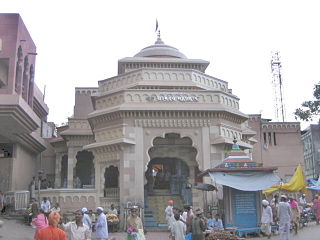
Pandharpur is a Popular pilgrimage town, on the banks of Chandrabhagā River, near Solapur city in Solapur District, Maharashtra, India. Its administrative area is one of eleven tehsils in the District, and it is an electoral constituency of the state legislative assembly. The Vithoba temple attracts about a million Hindu pilgrims during the major yātrā (pilgrimage) in Ashadha (June–July).
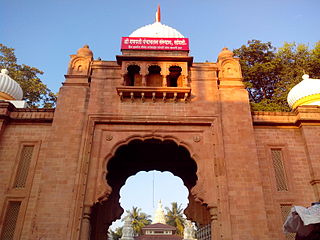
Sangli district is a district of Maharashtra state in India. Sangli city is the district headquarters. It is bordered by Satara district, Solapur district to the North, Karnataka state to the South-East, by Kolhapur district to South-West and by narrow portion on the East side to Ratnagiri district. It is present on the southern tip of Maharashtra.
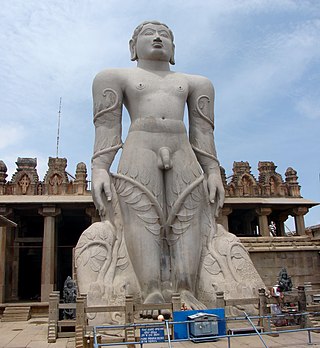
Bahubali was the son of Rishabhanatha and the brother of the chakravartin Bharata. He is a revered figure in Jainism. He is said to have meditated motionless for 12 years in a standing posture (kayotsarga), with climbing plants having grown around his legs. After his 12 years of meditation, he is said to have attained omniscience.

National Highway 4 was a major National Highway before National Highway renumbering in Western and Southern India. NH 4 linked four of the 10 most populous Indian cities – Mumbai, Pune, Bangalore, and Chennai. NH 4 was 1,235 km (767 mi) in length and passed through the states of Maharashtra, Karnataka b'lore and Tamil Nadu. It is now numbered as National Highway 48 (India). National Highway 4 was known as P.B.Road in many parts of Maharashtra and Karnataka states before it was renumbered.

Jainism has been present in Maharashtra since ancient times. The famous Ellora Caves demonstrate that Jainism was part of a thriving religious culture in Maharashtra in premodern times.
Jaysingpur is a city and municipal council in the Kolhapur district of the Indian state of Maharashtra. The city derives its name from Raja Jaysing, the father of Shrimant Chhatrapati Shahu Maharaj of Kolhapur, who planned and developed the architecture of the city. Shahu Maharaj laid out Jaysingpur as one of the few "chess board cities" in Maharashtra where roads meet at 90-degree angles. Jaysingpur has emerged as a satellite of Sangli city and is growing at rapid pace.

Karad is a town in Satara district of Indian state of Maharashtra. It is located 302 km (180.19 miles) from Mumbai, 74 km from Sangli and 162 km from Pune. It lies at the confluence of Koyna River and the Krishna River known as the "Pritisangam". The two rivers originate at Mahabaleshwar, which is around 100 km from Karad. Karad is well known for sugar production and is known as the sugar bowl of Maharashtra owing to the presence of many sugar factories in and around Karad. It is considered an important educational hub in Western Maharashtra due to the presence of many prestigious educational institutes. Karad is resting place of the first chief minister of Maharashtra Yashwantrao Chavan situated at the confluence of the Krishna and Koyana rivers. It is ranked as the cleanest town in Swachh Survekshan 2020 in the category of population with less than 1 lakh.
Tasgaon Tasgaon is a city in Maharashtra and Taluka in Sangli district in the Indian state of Maharashtra. Tasgaon city is developing city in Maharashtra. Tasgaon was given as Jahagir to Parshuram Bhau Tasgaonkar by Narayanrao Ballal Peshwa in 1774. Tasgaon Sansthan was lapsed by British during ruling of Shrimant Ganpatrao Tasgaonkar.

Karnataka, a state in South India has a long association with Jainism, a religion which enjoyed patronage of major historic kingdoms in the state such as the Rastrakuta Dynasty, Western Ganga, Kadamba and Chalukya dynasties and the Hoysala Empire. Today the state is home to a number of Jain monuments, such as temples, Gommata statues and stambhas.
Shedbal is a town in the southern state of Karnataka, India. It is located in the Kagwad taluk of Belagavi district in Karnataka. Shedbal is very close to Sangli Miraj twin cities.
Nrusinhawadi commonly known as Narsobawadi or Narsobachi Wadi is a small town in Shirol Tahasil in Kolhapur district, Maharashtra. Narsobawadi gets its name from the presence of 'Shri Nrusinha Saraswati', the Purna Avatar of Lord Dattatreya.
Arag is a small town in Sangli district in the Indian state of Maharashtra. It is approximately 30 km south east of the much larger urban conglomeration of Sangli-Miraj.

Miraj Junction railway station is an important busy junction railway station in the city of Miraj, Maharashtra. The Pune – Yeshwantpur railway line passes through Miraj where it meets the Miraj – Kolhapur branch line. The Miraj - Nagpur section starts at Miraj and passes through towns such as Pandharpur, Kurduvadi, Barshi, Latur, Parli Vaijnath and Osmanabad. It is also a major Junction on Mumbai - Miraj - Bangalore line and Miraj- Nagpur line (via Kurduvadi, Osmanabad, Purna and Nanded.
Malkapur is a town in Satara district in the southern part of Indian state of Maharashtra. It lies beside the city of Karad and along the NH4 highway. It had one of the highest revenue-generating Gram Panchayats in Maharashtra. Later on due to increasing population and urbanization it was given the status of a town having Municipal Council. The town is well known for its 24×7 water supply to each and every house. It is also implementing Solar City Project in which municipal council gives subsidy on purchasing any solar-powered equipment and reducing power dependency on MSEB. Malkapur town is divided into 17 wards for which elections are held every 5 years.
Sangli railway station serves the city of Sangli in Maharashtra, India. It is a class A station of Pune railway division of Central Railway Zone of Indian Railways.
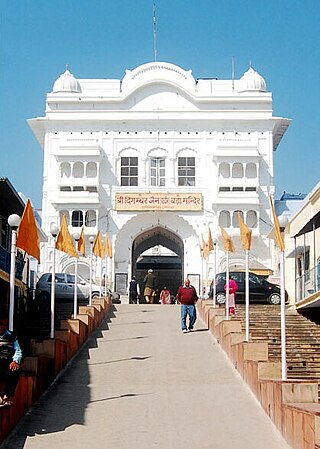
Digamber Jain Prachin Bada Mandir is a Jain temple complex located in Hastinapur, Uttar Pradesh. It is the oldest Jain temple in Hastinapur dedicated to Shantinatha, the 16th Jain Tirthankara.


